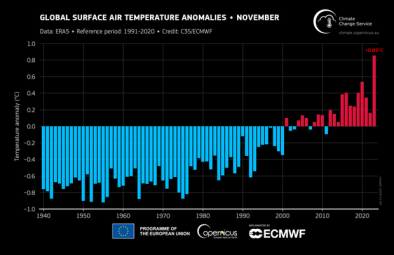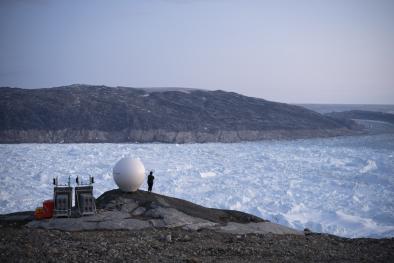Science Source
Observational constraints on mixed-phase clouds imply higher climate sensitivity
- States that how much global average temperature eventually will rise depends on the Equilibrium Climate Sensitivity (ECS), which relates atmospheric CO2 concentration to atmospheric temperature
- States that ECS has been estimated to be between 2.0° and 4.6°C for decades, with much of that uncertainty owing to the difficulty of establishing the effects of clouds on Earth's energy budget
- Uses satellite observations to constrain the radiative impact of mixed phase clouds
- Concludes that ECS could be between 5.0° and 5.3°C—higher than suggested by most global climate models
Related Content
Headline

Feb 15, 2024 | Climate Nexus Hot News
Amazon Could Reach Tipping Point By Midcentury
Headline

Jan 16, 2024 | Climate Nexus Hot News
2023 Smashes Hottest Year Record
Headline

Dec 7, 2023 | Climate Nexus Hot News
It’s Official - 2023 Is World's The Hottest Year On Record
Headline

Dec 7, 2023 | Climate Nexus Hot News
Earth Veering Closer To Dangerous Tipping Points


